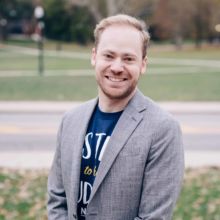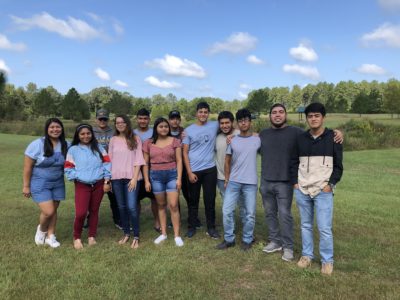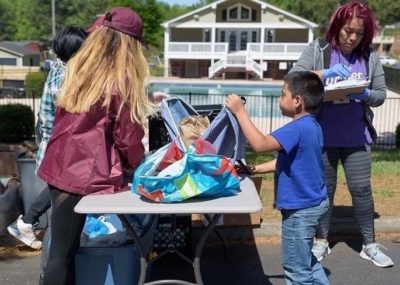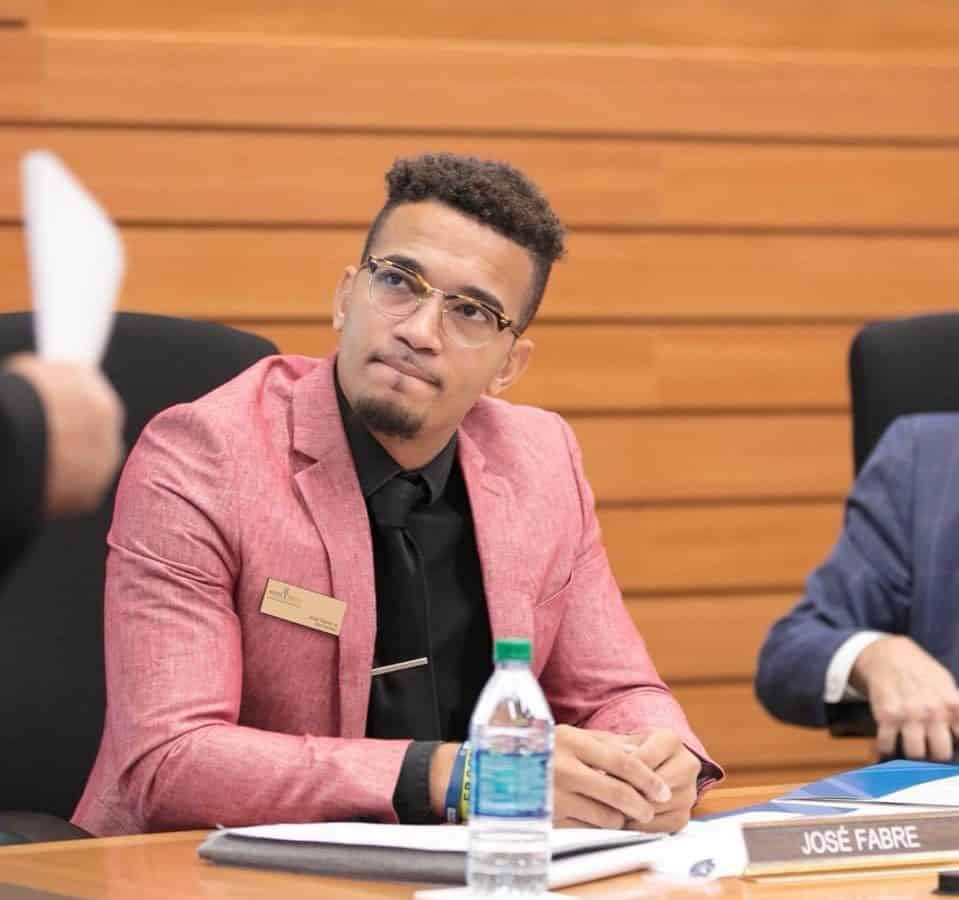
This article is part of a series and ongoing reporting on Latinx communities in North Carolina. Click here to read more.
As the country’s economy teeters on the edge of a major recession, community colleges are rushing to simultaneously respond to the COVID-19 pandemic and prepare to be on the front-lines of economic recovery. Successful strategies will almost certainly require intentional efforts to support the Latinx community, which has grown roughly 25% since the 2009 Great Recession and represents the fastest growing share of students in North Carolina’s public schools and community colleges.1
While some of the state’s colleges are on the verge of recognition as Hispanic-Serving Institutions, nearly all of the state’s community colleges will need to work on these issues. In fact, most of the population growth since 2009 has been due to U.S. born Latinx individuals moving to North Carolina.2 To understand some of the challenges and opportunities, we look at one student’s experience getting to Raleigh and finding his way to Wake Tech, where he became their first Latinx student body president.
A tough road to Raleigh
“I don’t know if you have heard of this, but I actually graduated high school with a 0.67 GPA,” says José Fabre, Jr., with a laugh to diffuse the shock. It is a shock, partially because of the number and partially because he graduated at all. But it speaks to an innate drive, that itself should not be at all surprising when you learn that Fabre is about to graduate with two associate degrees and a 3.7 GPA.
As unique as Fabre is individually, his story reflects the challenges many Latinos overcome to find their way to higher education. In a national higher education ecosystem that often overlooks Latinx adult learners, Fabre’s journey demonstrates why many education advocates want policymakers to abandon programs designed for the quickly vanishing “traditional” student archetype.
Fabre’s journey started 500 miles north of Raleigh, in the Bronx. He never met his father, who was killed before Fabre was born, but was an influential figure in his childhood nonetheless. Fabre and his siblings were sent to live in the Dominican Republic until he was nine when the family reunited in New Jersey. Fabre grew up aspiring to take up the family business: grocery stores. For Fabre, grocery stores seemed like an obvious career path and one that he thought required little education. He grew up being told his dad found success without college by owning a bunch of successful grocery stores. The woman who owned the grocery store where Fabre worked did not have a degree either. But as he grew up, the reality came into clearer focus.
“Honestly, I thought that education was not going to be important. I thought that I didn’t need high school or a college degree in order for me to be successful,” says Fabre. “It wasn’t until I was a little bit older I realized, and I started investigating,” he says dryly.
Well into his high school career, Fabre realized he needed a change of direction but was on the verge of dropping out. His school’s guidance counselor kept on Fabre to make sure he got to graduation.
“I’d miss school for like a week or two weeks and then just came back because my counselor told me, ‘Hey, listen, don’t do this. Come on. You could do this. You’re almost done,’” recalls Fabre. “She was the one who fought really hard, really hard, really hard for me to finish.”
As he neared the finish line, Fabre applied to a local community college. While he understood it was an open access school, being accepted meant the world to him and sparked a glimmer of hope. But the day after his high school graduation, Fabre and his mom packed up and moved to Raleigh with his brother and stepfather.
Back to campus
Like he did in New Jersey, Fabre applied to Wake Tech just to know that he could. This time, he took the extra step of taking the placement exam. But that was it for the time being.
“I spent two years just working, working, working. I was just doing deliveries of refrigerators and stoves and microwaves. And it was a really heavy job. It was good. I was getting paid, but I just didn’t want to do that for the rest of my life, you know. And then I started looking into Wake Tech [again].”
He got home after a particularly tough day at work, opened his computer and registered for classes. He did not know what type of associate degree he wanted or which professors were good, but he knew he wanted to go back to school. Things started changing quickly from there, due in large part to the support he received from Wake Tech when he got to campus for his first classes.
“The staff and the faculty, they’re proud to be there. They’re proud to help out. And I was able to see that since day one. I was able to find people in my life, like the professors who were just willing to help me since day one, literally.”
He sought academic support from the Individualized Learning Center, which provides tutoring on a range of topics, and started getting active in student organizations. He joined Sigma Delta Mu, an affinity society that promotes Spanish language studies and cultural exchange. During a meeting with an advisor, he first learned about opportunities in the student government association (SGA).
“Here I am after I graduated with a 0.67 GPA from high school, trying to be the president for the largest community college in the state of North Carolina,” he says. Not long after, Fabre became SGA president. It opened doors for him, as well as perspectives. The next year was a rush of experiences that helped him meet students across the country and even visit Mexico as part of GoGlobalNC’s Latino Initiative.
He added an associate degree in engineering to his associate of science degree with plans to transfer to NC State and pursue structural engineering. Fabre was supposed to get married and graduate this May. However, before the COVID-19 crisis, things took a turn for Fabre.
“It was working out for me until my mom got evicted. That’s when things changed. Because then I was practically homeless,” he says. “I was just like, this is just different. I can’t focus. I was saving my last classes for Wake, like, really hard classes.”
With few options, he delayed his last semester. He got married a few months earlier than planned—a move that proved prescient just days before stay-at-home orders. He now has his own apartment with his wife and plans to wrap up at Wake Tech in the fall semester.
‘We’re just trying to not have them drop out’
Wake Tech has hired Fabre to recruit more Latinx students. Who could better speak to Latinx students about overcoming barriers to education than Fabre? He has lived it all. As unique a person as Fabre is, his story reflects the experience of many Latinos navigating education systems.
“Every time we’re going to high schools, we’re speaking with ESL professors and just reaching that community … And the biggest dropout rates come from Hispanic students here in the Wake County area. And so that’s what we’re trying to [change],” Fabre says. “We’re just trying to not have them drop out.”
Carolina Demography identified the key educational transitions where students tend to drop out of the process, aptly called the “leaky pipeline.” The oversimplified conclusion: achieving the state’s attainment goal is all about retention. The leaky pipeline provides a snapshot of how our education systems are performing. Fabre has been at risk of dropping out at nearly each point in the process.
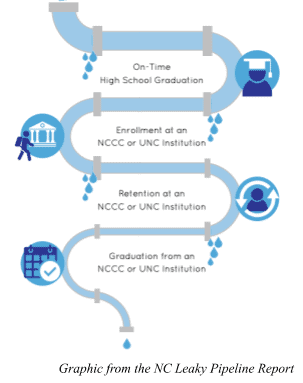
He started skipping school in high school. He did not immediately enroll in college after high school graduation. He hit ‘pause’ on his last semester due to housing insecurity.
In particular, Fabre’s story highlights ways counseling in high school and college may help Latinx students successfully move through these tough educational transitions.
“If it wasn’t for [my counselor], honestly, I would not have gotten my high school diploma … High school counselors are really important, especially for the Hispanics,” says Fabre. “I know that is my personal experience, but I know a lot of Hispanic students, and I know that this is what we go through.”
He credits the supportive environment at Wake Tech with keeping him motivated to continue learning and growing, particularly the Individualized Learning Center, which has made Fabre confident that he will have a support safety net of tutors when the coursework gets tough. Rather than relying on one counselor, he has a community of support.
Lessons learned
Many of the lessons Fabre has learned through his experiences can provide valuable lessons for North Carolina as it works to increase attainment for Latinx students. Three major takeaways are: 1) build pathways through community college, 2) make success feel possible, and 3) support parents and develop financial support systems
Build pathways through community college
Each year, high school seniors are asked about their post-graduation intentions. Latinx and Native American students are the least likely to have any college plans, but Latinx students are the only group who plans to attend community college at a higher rate than four-year colleges. If that is the postsecondary on-ramp of choice, Latinx students will benefit from strong transfer systems and advising to help motivate decisions to advance to bachelor degree programs.

Make success feel possible
Roughly half of Latinx students are first generation, so they do not have familial know-how to lean on when considering whether — and how — to transition to a college education.3 On top of that, studies have linked language barriers to lower confidence and higher rates of depression among students.4
It made all the difference for Fabre to know the Wake Tech placement exam was not a high stakes test.
“I think I asked them, what happens if I just don’t do good? And they were like, well, if you don’t do good, then it’s just a measure of where we’re gonna place you. So that set a comfort zone for me because I was like, well now I know that I’m not gonna be rejected. It’s just finding out what works best for me.”
Representation also matters. Fabre is uniquely positioned to speak with students who will identify with him. As he puts it, “I’ve been through a lot … So when people are, you know, Hispanic people, when I’m trying to help them out and they’re like, yeah, but we’re about to get evicted. Well, I know what it feels like.”
Support parents and develop financial support systems
Stability and parent engagement can determine student success. Nationally, more than a quarter of Latinx children live in poverty, compared to 18% of the general population.5 White families have roughly 10 times the wealth of Black and Latinx families. Fabre says financial instability in Latinx families allows the cycle to continue with new generations.
“The interesting thing is that when I was, you know, asking questions to Hispanics, I was getting the same feedback from them. I wasn’t seeing that stability, you know, emotionally and financially in their family,” he says. “Maybe if I didn’t have as many problems as far as moving to so many different places because my mom couldn’t pay rent and my dad couldn’t pay rent, and we had to move like 25 times that I could count — if it wasn’t for all of those things, if we would have gotten resources, maybe I would have done good in high school,” says Fabre.
Community colleges like Wake Tech are on the front lines of adapting to quickly changing cities and service areas—the college itself serves a disproportionately large share of Latinx students (17%) compared to the county itself (10%). Wake County has seen its Latinx community balloon over the years, now 21 times larger than it was 30 years ago.6
If we learn anything from Fabre’s story, it is that student success should not rely on luck or the one counselor. Entire systems need to evolve to meet the moment. Ultimately, most of our higher education systems were designed at a time when collegiate student bodies were nearly all white. Today, as campuses change with demographic shifts, the support systems and delivery methods may need to evolve as well.
“College gave me the opportunity to make the connections that I need, [so] that we can make the right choices, and I can show my family how to make the right choices,” Fabre said. “I want to challenge myself to do so, to do something in life. You know, it doesn’t matter the struggles that we go through. I really want to make it.”
